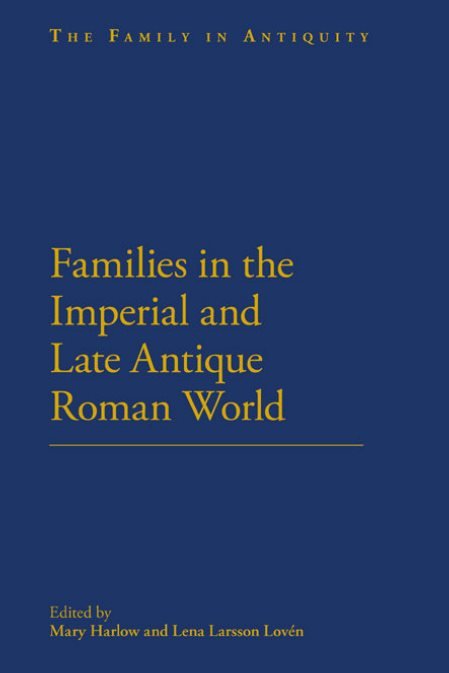1) Families in the Greco-Roman World – Ray Laurence, Agneta Stromberg
Bloomsbury Academic | 2011 | PDF, EPUB
The family has been recognised in the ancient world as the key social institution on which both society and the state are based. However, in the pre-Classical and Classical world the family was constructed in dissimilar ways and provides the means to explaining why the civilizations of the ancient Mediterranean, although sharing many cultural features, in fact differed greatly. This volume draws on the most recent work of leading scholars in the field with the aim of establishing a new understanding of the ancient family for the 21st century. In so doing, the book includes new approaches to social institutions, depictions of women and children, the Seleucid dynasty as a negative model of family, the inclusion of Etruscan societies, and a fundamental re-assessment of the family in antiquity.
2) Families in the Roman and Late Antique World – Mary Harlow, Lena Larsson Loven
Bloomsbury Academic | 2012 | PDF
This volume seeks to explain developments within the structure of the family in antiquity, in particular in the later Roman Empire and late antiquity. Contributions extend the traditional chronological focus on the Roman family to include the transformation of familial structures in the newly formed kingdoms of late antiquity in Europe, thus allowing a greater historical perspective and establishing a new paradigm for the study of the Roman family. Drawing on the latest research by leading scholars in the field the book includes new approaches to the life course and the family in the Byzantine empire, family relationships in the dynasty of Constantine the Great, death, burial and commemoration of newborn children in Roman Italy, and widows and familial networks in Roman Egypt. In short, this volume seeks to establish a new agenda for the understanding of the Roman family and its transformation in late antiquity.
This volume seeks to explain developments within the structure of the family in antiquity, in particular in the later Roman Empire and late antiquity. Contributions extend the traditional chronological focus on the Roman family to include the transformation of familial structures in the newly formed kingdoms of late antiquity in Europe, thus allowing a greater historical perspective and establishing a new paradigm for the study of the Roman family. Drawing on the latest research by leading scholars in the field the book includes new approaches to the life course and the family in the Byzantine empire, family relationships in the dynasty of Constantine the Great, death, burial and commemoration of newborn children in Roman Italy, and widows and familial networks in Roman Egypt. In short, this volume seeks to establish a new agenda for the understanding of the Roman family and its transformation in late antiquity.
 1 / 2
1 / 2 2 / 2
2 / 2